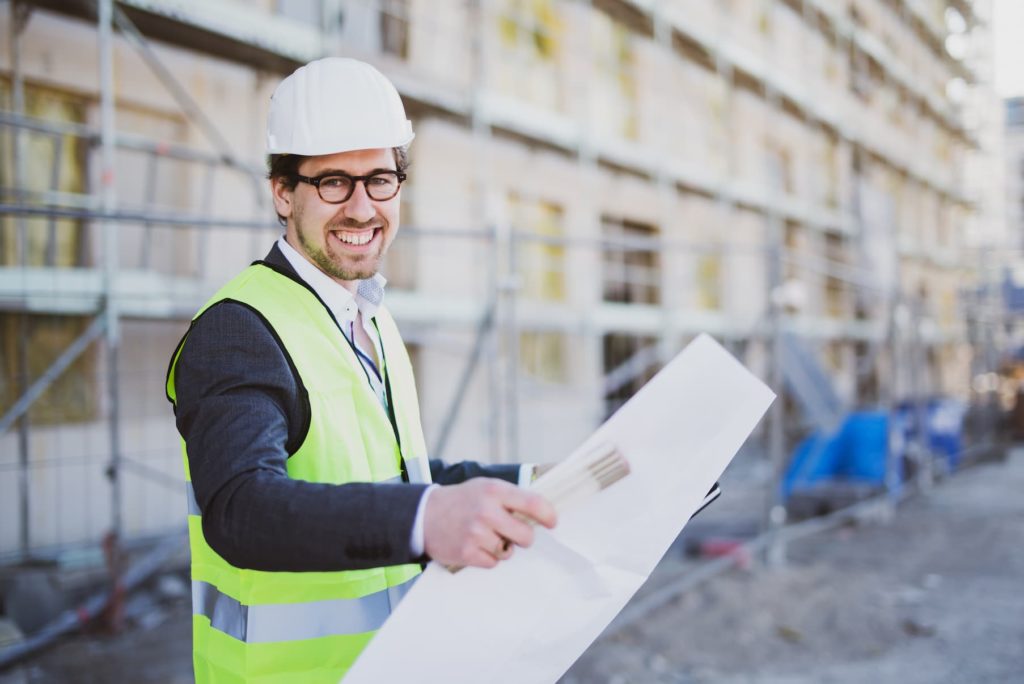

As you go about your day, have you ever wondered how the world around you takes its shape? The design, construction, and maintenance of highways, bridges, sewer systems, stormwater systems, parks, water supply and treatment systems, schools, and many more systems and structures we encounter every day all have something in common – municipal engineering. Let’s dive in to our comprehensive guide to municipal engineering in this blog!
What is Municipal Engineering?
Municipal engineering is a facet of the broader category of civil engineering and focuses on designing, constructing, and maintaining various types of infrastructure, facilities, and utility systems. These functions are handled by Municipal Engineers who work for Townships, Boroughs, Cities, and Authorities. In addition to infrastructures, Municipal Engineering includes responsibilities focused on environmental issues and tasks that contribute to the quality of life for municipal residents.
What are the Key Roles and Responsibilities of a Municipal Engineer?
Municipal Engineers have an extensive range of roles and duties that they may need to fill throughout their careers. Providing consulting services that include, but not limited to:
- Review of Land Development Plans for conformance to a Municipality’s Codes and Ordinances.
- Evaluating and improving existing stormwater and flooding issues
- Pursuing Federal, State, and Local funding for projects
- Developing and managing budgets for engineering services
- Conducting and reporting feasibility studies, economic analyses, and traffic studies
- Overseeing master plans and the details of streets and flood control
- Maintaining official Municipal roadway, zoning, and utility mapping
- Overseeing the design and planning of Municipal systems
- Manage the construction of Municipal infrastructure projects
- Observe the construction of site improvements for Land Development Projects
What Are the Most Common Services Municipal Engineers Provide?
Water and Wastewater Services
Many Municipal Engineers spend most of their time working with water and wastewater facilities and services. This includes the water and sewer pipeline systems that serve surrounding homes, schools, and businesses throughout our communities. Municipal Engineers are involved at every step of the way, from conveyance to pumping stations to storage tanks and treatment plants. They are also often called upon to consult on plans and technical specifications for equipment, materials, and construction projects.
Stormwater and Drainage
In helping to protect communities, Municipal Engineers provide support in stormwater management by proposing, designing, and observing the construction of these viable solutions. Often times, they are working to correct existing stormwater issues with drainage facilities that are found to be inadequate or non-existent. A common issue is excessive rainfall levels, rendering drainage systems, or the use of stormwater recovery methods a must-have need to ensure best management practices are put in place.
Land Development
Municipal Engineers play a crucial role with subdivision and land development reviews, as they are responsible for reviewing designs to make sure they are in accordance with regulations such as the Subdivision and Land Development Ordinance (SALDO) and Stormwater Management ordinance (SWMO). He/she also determines that any design’s feasibility along with the assessment of land is deemed able to support the full development plan.
Traffic and Transportation
Our roadways and transportation systems demand constant attention from Municipal Engineers. Focusing on things like reviewing and preparing traffic studies, parking optimization studies, regional and sub-regional planning studies, signal planning and specification, and pedestrian transportation enhancement, municipal engineers work collaboratively with elected and appointed officials and staff, municipal staff, other consultants, residents, applicants, and permitting agencies to help see projects through from concept to the final design.
Structural Engineering Services
Municipal Engineers play a major role in designing, constructing, and maintaining structures such as culverts and bridges, with input in various aspects of each project. They consult with architects, designers, and other building contractors on structural layouts, loads from snow, or seismic activity and help decide what structural systems to use. They work with various building systems and materials, including steel, concrete, masonry, and wood, and select structural support elements like beams and columns.
Construction Administration
Construction Administration services are a comprehensive blend of planning and observation solutions and provide various types of documentation to federal, state, municipal, and community relations organizations. Construction managers are involved in the day to day building process for highways, bridges, utilities, and other municipal facilities. Municipal Engineers who specialize in construction management are likely certified by several industry regulators, including NICET (highway construction), ACI (concrete testing), and NECEPT (bituminous concrete pavement).
Talk to a Municipal Engineer Today
With more than four decades of experience, Carroll Engineering has a long history of providing comprehensive municipal engineering solutions, including subdivision and development plan reviews, zoning and land use planning, ordinance amendments, design preparation, contract bidding documents, and construction consulting. If you are planning new stormwater, road improvement, park, or public works projects, etc., or are looking for new municipal representation, please contact Thomas G. Wilkes, P.E, Municipal Engineer at twilkes@carrollengineering.com or 484-450-8475.
